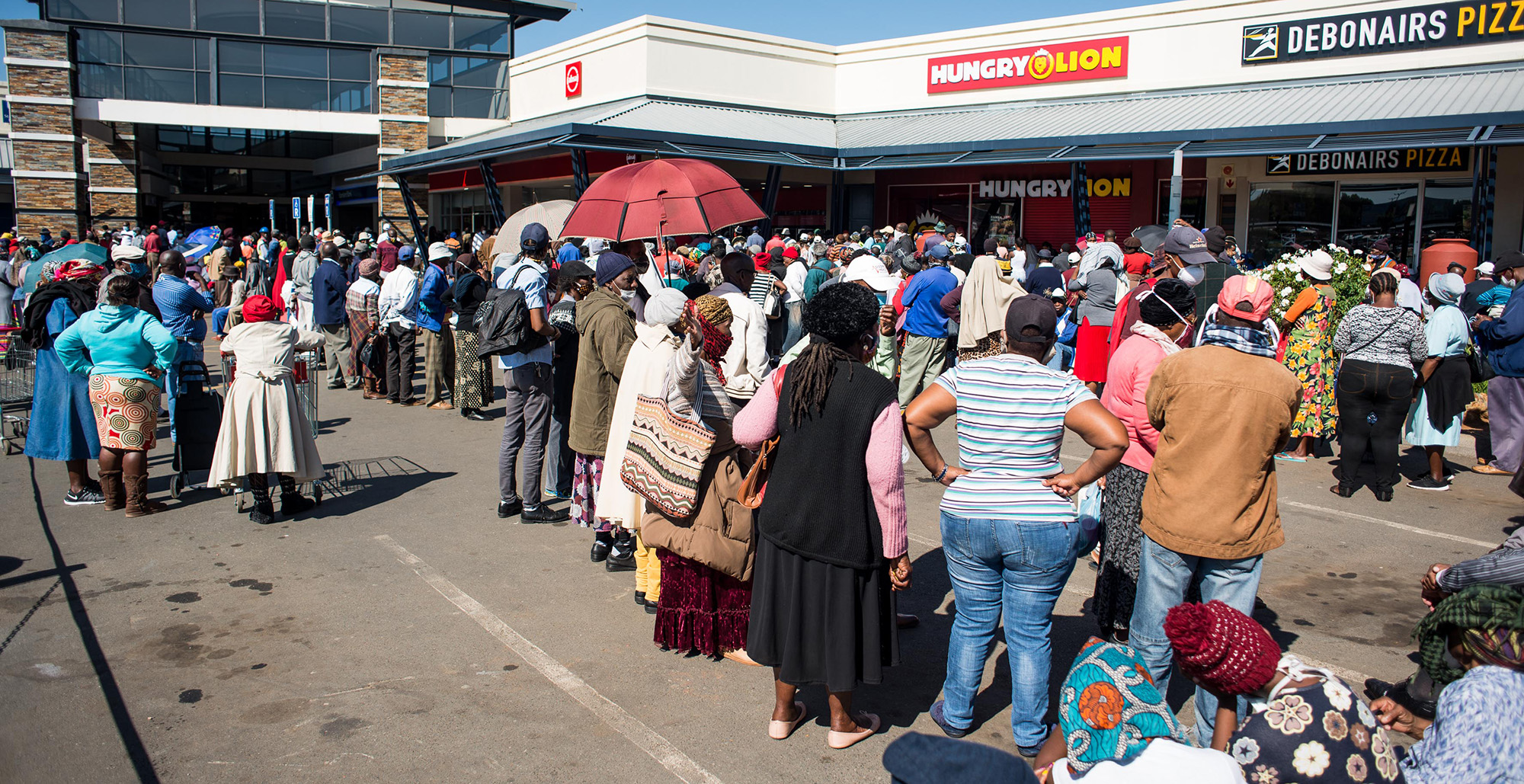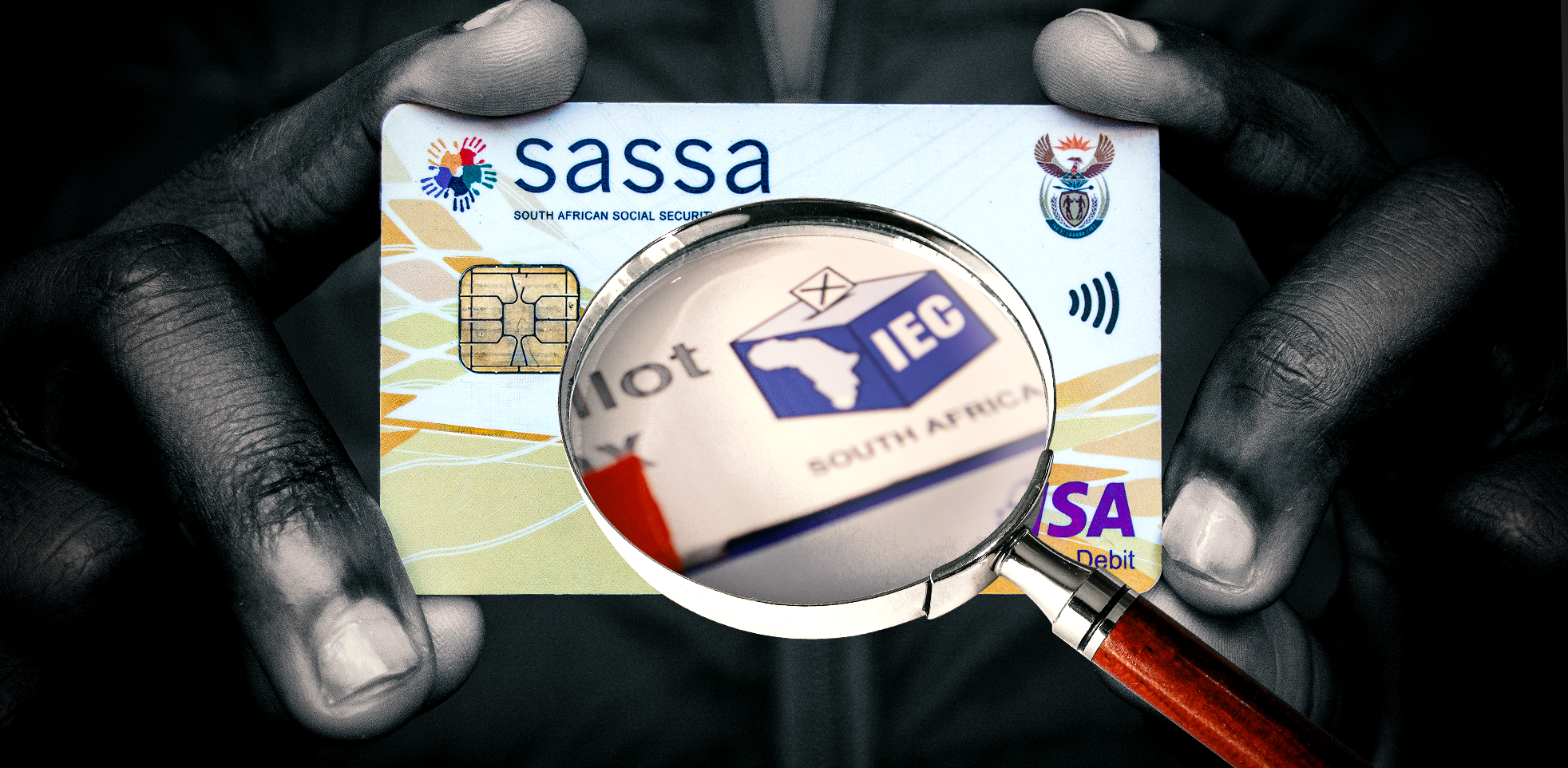At least three major dynamics around social grants now appear to be close to intertwining in complex ways.
First, the need of millions of people for help is leading to more pressure than ever for a basic income grant (BIG).
Second, the ANC is under unprecedented strain ahead of the elections.
Third, with a slowing economy, there are fears the government will be unable to pay for an increase in social grants.
Two weeks ago, ANC leader President Cyril Ramaphosa suggested that if the ANC were voted out of power, social grants and the National Student Financial Aid Scheme (NSFAS) would be in danger.
It is a measure of the power of social grants as a political issue that so many opposition parties responded so quickly.
The DA published a statement reiterating its support for social grants, while other parties, including ActionSA, castigated Ramaphosa for making this statement.
The importance of social grants in our society cannot be overstated.
It is clear that without this crucial intervention, many children (and adults) would be in even more dire circumstances than they are now.
https://www.dailymaverick.co.za/article/2014-07-16-social-grants-a-real-good-story-to-tell/
Social grants reduce inequality. They bind us together as a society. Taking from the rich and giving to the poor through accepted and peaceful means is one of the most important functions of government. By and large, the ANC government achieved this.
It is for these reasons that most of SA’s mainstream political parties support social grants.
One of the strange aspects of this is that while grants play such an important role, the ANC has been relatively coy about using them as a campaigning tool, which is why Ramaphosa’s comments came as such a shock.
There are good reasons the ANC has been loath to make grants an electoral issue.
 Senior citizens queue for their monthly social grants outside Jabulani Mall in Soweto on 4 May 2020. (Photo: Gallo Images / ER Lombard)
Senior citizens queue for their monthly social grants outside Jabulani Mall in Soweto on 4 May 2020. (Photo: Gallo Images / ER Lombard)
If people felt their grants were threatened or could be cut off, there would be serious consequences.
Thus the ANC, as the party in power, is very wary of making this a political issue.
The other, more cynical reason, is that for any promise of a social grant that a governing party makes, an opposition party can simply offer more. They have nothing to lose by doing so.
As a result, it may be a political mistake for the ANC to use grants as a campaigning issue — and contrast its own, sometimes flawed, performance against the theoretical purity and abundance offered by its competitors.
While all these factors need to be considered, it is important to note that many academic studies have found virtually no link between social grants and voter behaviour.
One such paper, published before the pandemic in 2019 by Professor Jeremy Seekings, sums up the findings in its abstract thus:
“Receipt of a grant does not seem to increase the likelihood of voting for the incumbent party, and a critical attitude towards grants does not seem to reduce the likelihood of voting for the incumbent party. Grants might be paid to many South Africans, but they do not seem as important as enduring loyalties to the incumbent party or assessments of its overall performance.”
This confirms research by academics and groups like the Black Sash, which found that many South Africans understand a social grant is a right that cannot just be removed when a new political party comes into power.
https://youtu.be/d1lWvRogB34?si=6wwwjIjqI5ctEDIq
While it would be politically irrational to expand social grants at this point or to make doing so a campaigning issue, the ANC may have no choice. The pressure on the ANC and on the government to introduce a formal BIG has been growing for some time. A well-organised group of researchers and economists, backed up by factual findings of the importance of the Social Relief of Distress grant in people’s lives, has run a powerful campaign for a BIG to be introduced.
At the same time, there is now more evidence of the impact of hunger in South Africa.
The fact that at least one mother felt she had no other option but to kill her starving children and herself is just one example.
There are many other examples of how deep this problem runs.
https://www.dailymaverick.co.za/article/2023-08-15-do-the-maths-stupid-cost-of-hunger-is-far-greater-than-the-cost-of-solving-it/
Pressure on ANC
Faced with this kind of evidence and intense pressure at the polls, some in the ANC may argue strongly that it should announce its intention to introduce a BIG. The obvious moment to do this would be at its election manifesto launch in Durban next month.
Of course, it is not certain that this would change the outcome of the election. So deep is the cynicism among so many voters, that many would claim the ANC has no intention of following through.
The fact that the party has been discussing this issue for so many years and has still not instituted it may well be used as a justification for this view.
There would be other consequences of such a decision.
Minister of Finance Enoch Godongwana has warned many times of SA’s dire fiscal position, as have his predecessors.
If the ANC were to make such an announcement, ratings agencies, investors and others could see this as a sign that the party is not committed to prudent fiscal management.
They might believe the ANC would be throwing caution to the wind in exchange for votes. The result of this would be that fewer institutions would lend us money, at a time when Eskom and Transnet are in dire need of financial support.
And it is not clear that the government can afford a basic income grant. For years there have been public concerns about a BIG, often claimed to be the tension between a shrinking number of high-net-worth individuals paying taxes and a growing number of people receiving social grants.
While those who propose a BIG will argue the government can afford it and those who oppose it will argue the government cannot, most beneficiaries of the grant would spend it on consumption — mostly of food and other necessities. This is at a time when SA needs to spend much more on investment in infrastructure to grow the economy.
Still, when things get dire, the solutions become desperate. Social grants appear to be too powerful a tool to leave alone. The “Break Glass in Case of Emergency” political box containing social grants issues is likely to be smashed open in the coming months. DM




 Senior citizens queue for their monthly social grants outside Jabulani Mall in Soweto on 4 May 2020. (Photo: Gallo Images / ER Lombard)
Senior citizens queue for their monthly social grants outside Jabulani Mall in Soweto on 4 May 2020. (Photo: Gallo Images / ER Lombard) 